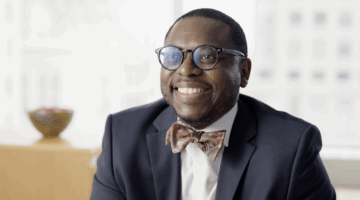 Egg donors and sperm donors are the angels sent from above. They’re the answer to prayers for a baby for many people trying to grow their family. Singles, gay couples, and straight couples suffering from infertility alike all turn to the generosity of gamete donors. But when it comes to whether a donor should enjoy anonymity or not, the debate continues to rage on.
Egg donors and sperm donors are the angels sent from above. They’re the answer to prayers for a baby for many people trying to grow their family. Singles, gay couples, and straight couples suffering from infertility alike all turn to the generosity of gamete donors. But when it comes to whether a donor should enjoy anonymity or not, the debate continues to rage on.
International Bewilderment. South Africa is the latest country to take the issue seriously. The South African Law Reform Commission released a discussion paper open for public comment through the end of this month. It concerns the question of whether the law should entitle donor-conceived children the right to know their biological roots.
Right to Know One’s Biological Identity. If South Africa opted to take this path, it would not be the first country to ban anonymity for sperm and egg donors. Australia, Britain, and Sweden all give donor-conceived children the legal right to know the identity of their genetic parents. The South African discussion paper argues that children unable to know their genetic identity may suffer from “genealogical bewilderment.” (The paper doesn’t mention Jon Snow by name, but I assume that is who the researchers have in mind.) The argument continues that some children need to know their genetic identity for normal psychological development. (Hmm, isn’t Bran the creepy one these days?)

How Legal Intelligence Is Bringing In A New Era Of Litigation For Plaintiff Firms
Darrow is building a new category of legal intelligence — one that helps firms understand complex legal landscapes earlier, more clearly, and with greater confidence.
Pro for Anonymity. It’s easy to say that a donor-conceived person should be able to know their identity. Who would object to that? But it’s not so simple. Fertility doctors object, for instance. And people trying to conceive using a donor. And, of course, donors themselves. The spokesperson for South Africa’s Infertility Awareness Association, Meggan Zunkel, reported that most donors do not want to be contacted by their donor-conceived offspring, and that many people considering turning to an egg or sperm donor would not do so without the promise of donor anonymity.
Dr. Paul Le Roux, the spokesman for the African Society for Reproductive Medicine and Gynecological Endoscopy, elaborated that “non-disclosure can be essential for some parents‚ as they need to keep the gamete donation private for specific reasons. This can be important in cultures where gamete donation is less accepted, or where gamete donation is not accepted for religious reasons‚ for example the Muslim Community in South Africa.” Le Roux further noted that: “Studies on children who have not been informed of their biological parents show that their development has not been harmed and that they are also doing psychologically well.”
Is This Debate Moot? Many argue that there is no true choice to remain anonymous. Anonymity, in other words, is dead. Wendy Kramer, the founder of the Donor Sibling Registry (www.donorsiblingregistry.com) — a website that connects donor-conceived children with their half-siblings — points to a quote from Dr. JLH Ever, Editor-in-Chief of Human Reproduction: “All parties concerned must be aware that, in 2016, donor anonymity has ceased to exist.”
Kramer explains, “if you are planning on being an ‘anonymous’ donor, it is important to understand that because of commercial DNA testing and Internet search engines, the likelihood of your remaining ‘anonymous’ in the future is not likely.” Kramer feels strongly that egg and sperm banks need to stop promoting the false idea of anonymity to their donors. She notes that just this morning there was a post to the Donor Sibling Registry Facebook page, “Exciting news. We are only a few weeks into the DNA journey but I think I have identified my child’s donor.” Kramer notes that this type of message is very common. “Anonymous” donors can be found.

How The Law Office Of Stephen L. Thomas Jr. Reclaimed Valuable Hours And Strengthened Client Care With 8am
Founded in 2017, the Baltimore-based Law Office of Stephen L. Thomas Jr. unified case management, communication, and payments with 8am—saving 10–20 hours a week for clients, trials, and growth.
It’s just that easy. It’s time to put the debate to bed and focus on educating donors of the reality of “anonymity.” Now if only Jon Snow had access to a 23andMe kit. He could have saved us 7 seasons of wondering.
 Ellen Trachman is the Managing Attorney of Trachman Law Center, LLC, a Denver-based law firm specializing in assisted reproductive technology law, adoption, and estate planning, and Co-Director of Colorado Surrogacy, LLC, a surrogacy matching and support agency. You can reach her at [email protected].
Ellen Trachman is the Managing Attorney of Trachman Law Center, LLC, a Denver-based law firm specializing in assisted reproductive technology law, adoption, and estate planning, and Co-Director of Colorado Surrogacy, LLC, a surrogacy matching and support agency. You can reach her at [email protected].